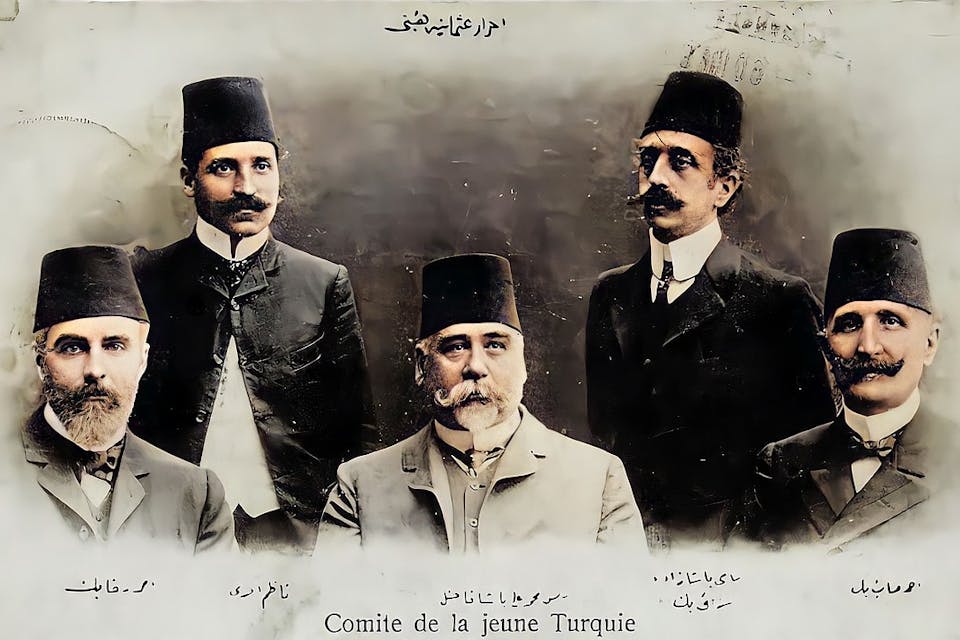
April 23, 2025
The Forgotten Story behind the “Deep State”
The real network of criminals, secret police, and dissident officers that transformed the Ottoman empire.
To the best of my memory, I first encountered the expression “deep state” some fifteen years ago, when the Turkish cleric Fethullah Gülen, then living in the United States, was accused by his former ally, then-Turkish prime minister Recep Tayip Erdogan, of plotting against him. Gülen, a charismatic preacher, had built up an influential network of schools, mosques, and religious organizations, and of followers in the Turkish government and armed forces, all inculcating his doctrine of a socially progressive Islam under his leadership; Erdogan, who unsuccessfully sought his extradition, claimed he had conspired to use this network to overthrow the Turkish regime.
Today, in the era of Donald Trump and Benjamin Netanyahu, “deep state” has become a buzzword. We all know that that it refers to an interlocking body of real or supposed bureaucrats, public officials, government employees, judges, military officers, academics, journalists, and intellectuals, all working surreptitiously together to thwart the will of a democratically elected government by preventing it from carrying out the mandate given it by the people. Beneath the visible surface of affairs, we are told, the octopus of the deep state spreads its tentacles everywhere and has everything in its unseen clutches. In the eyes of their loyal supporters, the Trumps and Netanyahus are dragon slayers doing battle with a sinister force that seeks to subvert the common man’s will.
It’s no accident that I first came across “deep state” in a Turkish context. Indeed, the term itself is a literal translation of Turkish derin devlet, which first was used by Turks, so it would seem, in reaction to the so-called “Susurluk scandal” of 1996; in this affair, a car collision near the town of that name led to the discovery of hidden ties between the minister of the interior, the Istanbul police, drug traffickers, and the leader of an ultra-nationalistic paramilitary group called the Grey Wolves. Derin devlet caught on quickly as a term for a system of covert links of this sort. By 2008 it had become, according to the German journalist Roland Magunia, “a household name, . . . referring to a state within the state.” Perhaps the earliest prominent appearance of it in English was in a 2012 article in the New Yorker. Written by the staff writer Dexter Filkins and titled “The Deep State,” it observed: